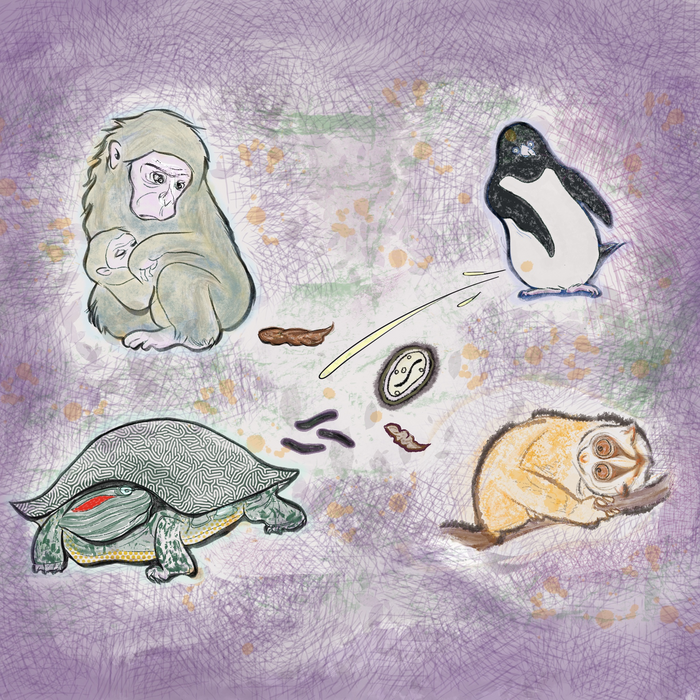Kyoto, Japan — Life for all animals, including humans, would be simpler if diseases had a sign saying “beware!” with flashing lights and blaring alarms. Instead, we humans have developed an emotional reaction called disgust. Do other animals share similar protective mechanisms?

Credit: KyotoU/Jake Tobiyama
Kyoto, Japan — Life for all animals, including humans, would be simpler if diseases had a sign saying “beware!” with flashing lights and blaring alarms. Instead, we humans have developed an emotional reaction called disgust. Do other animals share similar protective mechanisms?
While fear and predator avoidance have captured much attention in the field of animal behavior, in comparison, little have been published regarding avoidance of disease.
An international team of scientists has now set up a framework to test disgust and its associated disease avoidance behaviors across various animal species, social systems, and habitats.
“Over 30 species have been reported to exhibit disease avoidance strategies in the wild. We provide predictions for seven others that were previously overlooked and that could serve as new model species,” notes lead author Cécile Sarabian, a former JSPS postdoctoral fellow at Kyoto University.
With these predictions, the team accounts for models of specific ecological niches, sensory environments and social systems for a number of species including the native common octopus and the invasive red-eared slider, which are both relevant to Japan.
“The various costs and benefits involved in experiencing disgust and avoiding illness depend on the social system and ecology of the species,” remarks co-author Andrew MacIntosh, Associate Professor at Kyoto University Wildlife Research Center.
Disgust can be triggered by sensory cues associated with disease risk, such as the sight of diarrhea, which releases a set of behavioral or physiological responses that help animals avoid parasites, pathogens, and toxins.
The levels of disgust behavior vary also from species to species depending on their social systems and ecological niches. Since solitary species have relatively fewer social interactions and resulting disease transmission, they are less adapted than group-living species in recognizing and evading such life-threatening risks.
“Some species living in colonies, such as rabbits and penguins, go further in tolerating diseased mates since a community immunity strategy ensures the colony’s survival,” adds MacIntosh.
The implications to human health are significant since expected disgust-driven behaviors can be applied to the study of the Covid-19 pandemic. For example, a model of coronavirus infections that considers social distancing flattens the curve predicting the number of positive cases, in contrast to the exponential curve for cases without social distancing
“Beyond fundamental research, it’s important to keep promoting the creation of a database that gathers disease-avoidance evidence in animals and its applications in relevant conservation and wildlife management strategies,” concludes Sarabian.
###
The paper “Disgust in animals and the application of disease avoidance to wildlife management and conservation” appeared on 13 March 2023 in Journal of Animal Ecology, with doi: 10.1111/1365-2656.13903
About Kyoto University
Kyoto University is one of Japan and Asia’s premier research institutions, founded in 1897 and responsible for producing numerous Nobel laureates and winners of other prestigious international prizes. A broad curriculum across the arts and sciences at both undergraduate and graduate levels is complemented by numerous research centers, as well as facilities and offices around Japan and the world. For more information, please see: http://www.kyoto-u.ac.jp/en
Journal
Journal of Animal Ecology
DOI
10.1111/1365-2656.13903
Method of Research
Experimental study
Subject of Research
Animals
Article Title
Disgust in animals and the application of disease avoidance to wildlife management and conservation
Article Publication Date
13-Mar-2023
COI Statement
The authors declare no conflict of interest.




